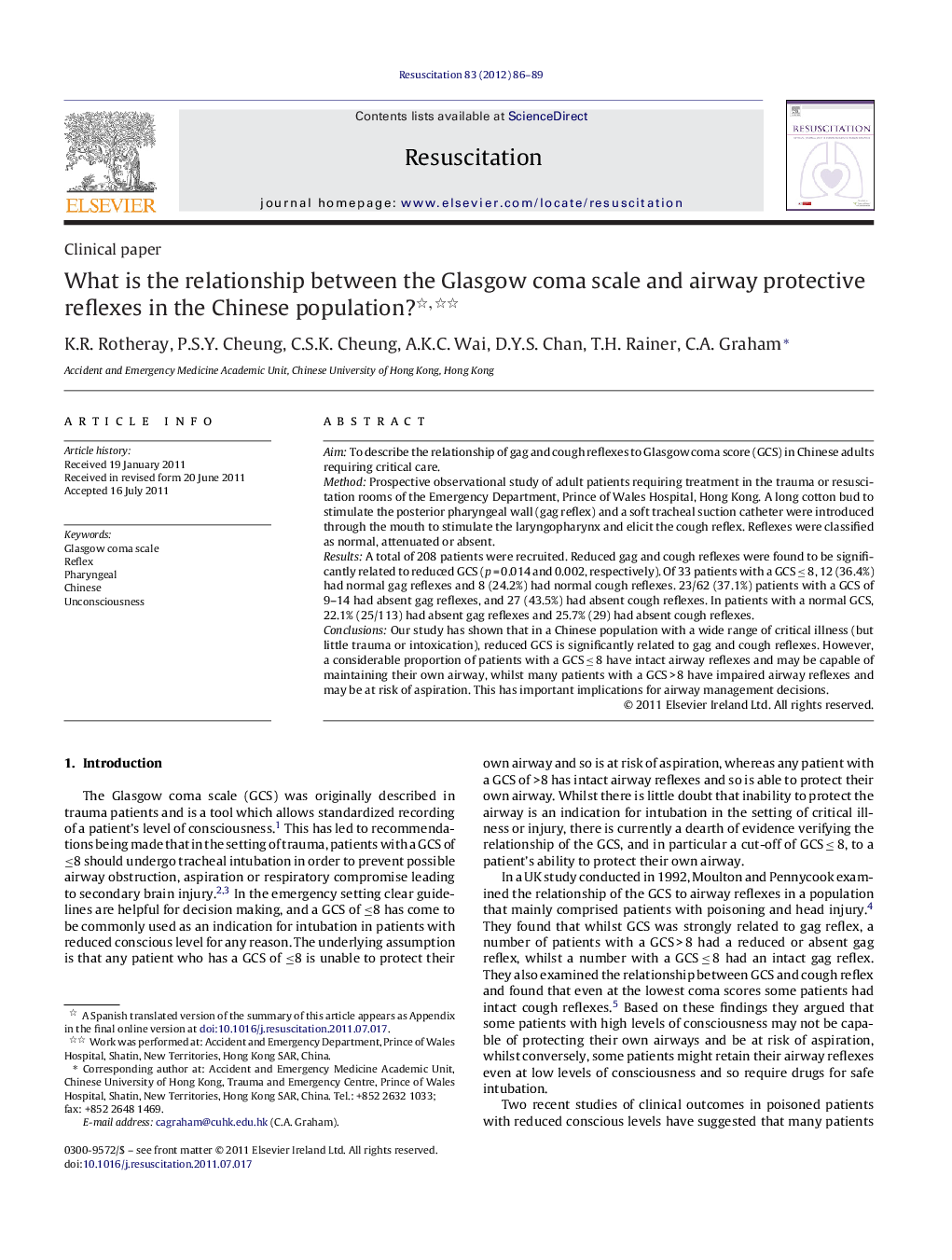| Article ID | Journal | Published Year | Pages | File Type |
|---|---|---|---|---|
| 3009066 | Resuscitation | 2012 | 4 Pages |
AimTo describe the relationship of gag and cough reflexes to Glasgow coma score (GCS) in Chinese adults requiring critical care.MethodProspective observational study of adult patients requiring treatment in the trauma or resuscitation rooms of the Emergency Department, Prince of Wales Hospital, Hong Kong. A long cotton bud to stimulate the posterior pharyngeal wall (gag reflex) and a soft tracheal suction catheter were introduced through the mouth to stimulate the laryngopharynx and elicit the cough reflex. Reflexes were classified as normal, attenuated or absent.ResultsA total of 208 patients were recruited. Reduced gag and cough reflexes were found to be significantly related to reduced GCS (p = 0.014 and 0.002, respectively). Of 33 patients with a GCS ≤ 8, 12 (36.4%) had normal gag reflexes and 8 (24.2%) had normal cough reflexes. 23/62 (37.1%) patients with a GCS of 9–14 had absent gag reflexes, and 27 (43.5%) had absent cough reflexes. In patients with a normal GCS, 22.1% (25/113) had absent gag reflexes and 25.7% (29) had absent cough reflexes.ConclusionsOur study has shown that in a Chinese population with a wide range of critical illness (but little trauma or intoxication), reduced GCS is significantly related to gag and cough reflexes. However, a considerable proportion of patients with a GCS ≤ 8 have intact airway reflexes and may be capable of maintaining their own airway, whilst many patients with a GCS > 8 have impaired airway reflexes and may be at risk of aspiration. This has important implications for airway management decisions.
